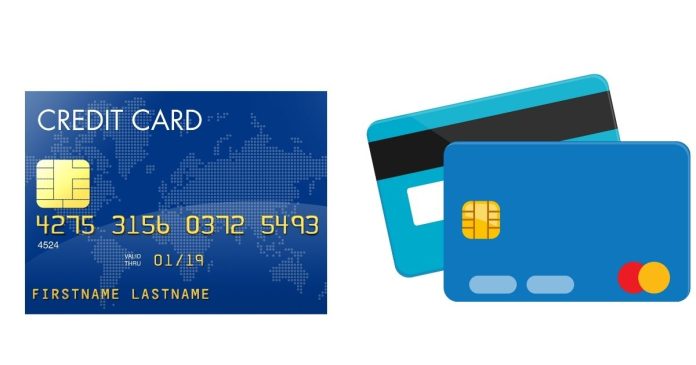Building credit is an essential part of achieving financial stability. A good credit score can open doors to better interest rates, rental approvals, and even job opportunities. If you’re just starting out on your financial journey, choosing the right first credit card is crucial. But with so many options available, how do you decide which one is best for you?
This guide will help you understand the key factors to consider when selecting your first credit card and recommend some of the best options to build your credit responsibly.
Why Your First Credit Card Matters
Your first credit card sets the foundation for your credit history. It allows you to:
- Build a Credit Score: Responsible use can help establish a positive credit history, boosting your FICO score.
- Learn Financial Responsibility: A credit card teaches budgeting, timely payments, and financial discipline.
- Access Future Credit: A solid credit history makes it easier to qualify for loans, mortgages, and premium credit cards.
However, choosing the wrong card can lead to high fees, unfavorable terms, and unnecessary debt.
What to Look for in Your First Credit Card
When choosing your first credit card, consider the following factors:
- No or Low Annual Fees
Look for a card with minimal costs to maintain, especially if you’re just starting out. - Reasonable Credit Limits
While you may not qualify for a high limit initially, make sure it’s enough to cover small, regular purchases without maxing out. - Low Interest Rates (APR)
Although paying in full every month avoids interest charges, a low APR can be helpful in case you carry a balance. - Credit-Building Features
Choose a card that reports your payment activity to all three major credit bureaus: Experian, Equifax, and TransUnion. - Rewards and Perks
Some starter cards offer cash back or points, but these should not come at the expense of higher fees or rates. - Ease of Approval
If you lack credit history, you may need a card designed for beginners or students, or consider a secured credit card.
Best First Credit Cards to Build Credit
Here are some excellent options for your first credit card:
1. Capital One Platinum Credit Card
- Best For: Building credit with no annual fee.
- Why It’s Great:
- No annual fee.
- Automatically considers you for a higher credit limit after six months of on-time payments.
- Great for individuals with limited or no credit history.
- Downside: Higher APR compared to some other cards, so it’s essential to pay your balance in full.
2. Discover it® Secured Credit Card
- Best For: Secured option with rewards.
- Why It’s Great:
- Reports to all three major credit bureaus.
- Earns 2% cash back at gas stations and restaurants (up to $1,000 in combined purchases per quarter).
- No annual fee.
- Refundable security deposit.
- Downside: Requires a refundable security deposit (starting at $200).
3. Petal® 2 “Cash Back, No Fees” Visa® Credit Card
- Best For: No fees and cash back.
- Why It’s Great:
- No fees—no annual fee, late fee, or foreign transaction fees.
- Earns 1% cash back on eligible purchases, increasing to 1.5% after 12 on-time payments.
- Suitable for those with little or no credit history.
- Downside: Requires a basic financial review to determine eligibility.
4. Chase Freedom Student Credit Card
- Best For: College students starting to build credit.
- Why It’s Great:
- $0 annual fee.
- Earn 1% cash back on all purchases.
- Get a $50 bonus after making your first purchase within three months.
- Automatic credit limit increase after five on-time payments.
- Downside: Available only to students.
5. Citi® Secured Mastercard®
- Best For: Straightforward credit building.
- Why It’s Great:
- Designed specifically for individuals with no credit history.
- Reports to all three credit bureaus.
- No annual fee.
- Downside: Requires a refundable security deposit.
Tips for Using Your First Credit Card Responsibly
- Pay On Time, Every Time
Late payments can significantly hurt your credit score. Set up automatic payments or reminders to avoid missing due dates. - Keep Your Credit Utilization Low
Try to use less than 30% of your credit limit at any given time to maintain a healthy credit score. - Avoid Carrying a Balance
Pay off your balance in full each month to avoid high-interest charges. - Monitor Your Credit Report
Regularly check your credit report for errors or fraudulent activity using free tools like Credit Karma or AnnualCreditReport.com. - Start Small
Use your card for small, manageable expenses, such as groceries or streaming subscriptions, to build a positive payment history.
Conclusion
Choosing your first credit card is an important decision that can set the stage for your financial future. Cards like the Discover it® Secured, Capital One Platinum, and Petal 2 Visa offer excellent options for building credit while minimizing costs and risks.
Remember, responsible usage is the key to success. By paying on time, keeping your balances low, and monitoring your credit, you’ll establish a solid foundation for a lifetime of financial health.
Do you have a favorite first credit card or tips for beginners? Share your thoughts in the comments below!



